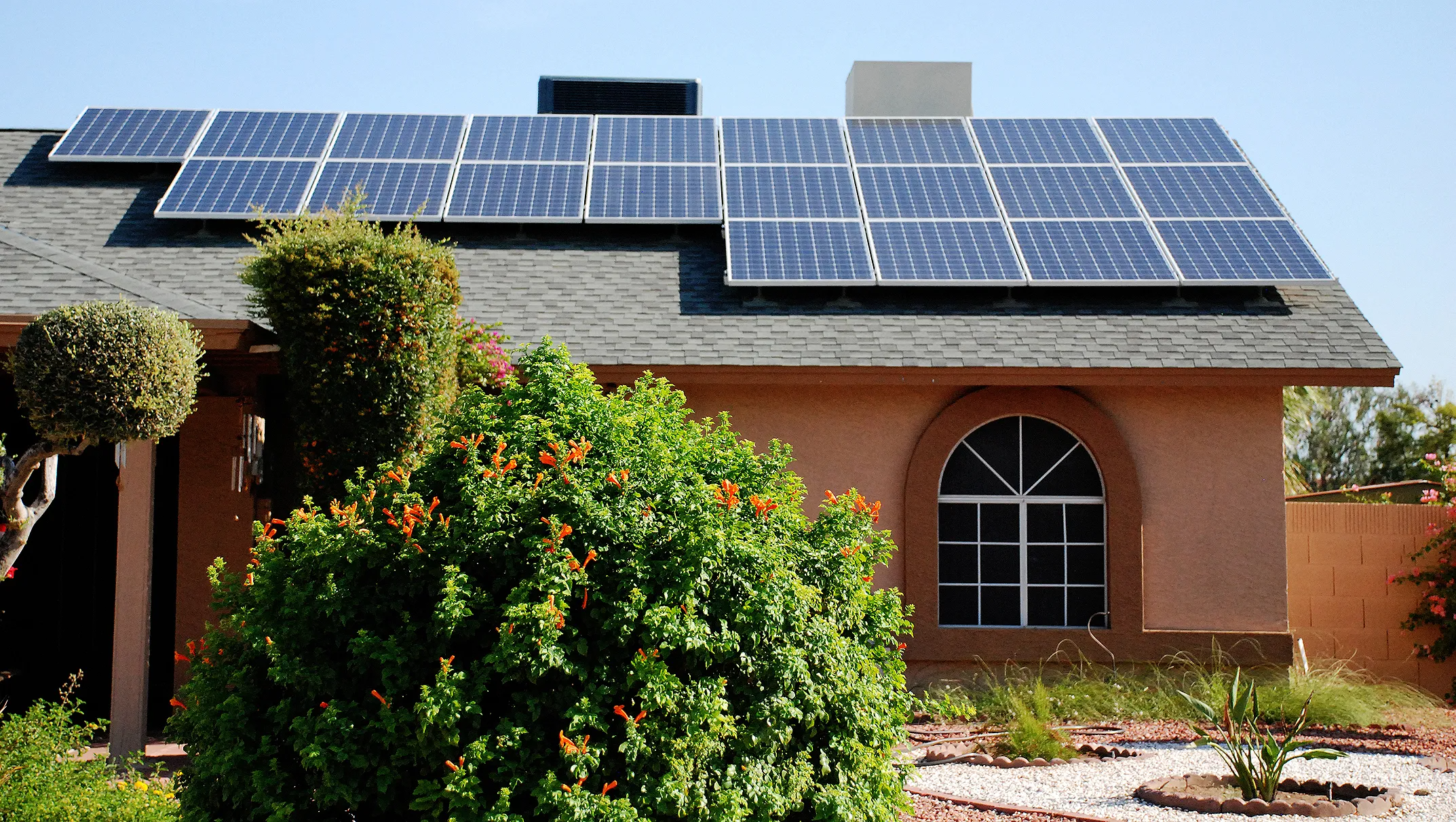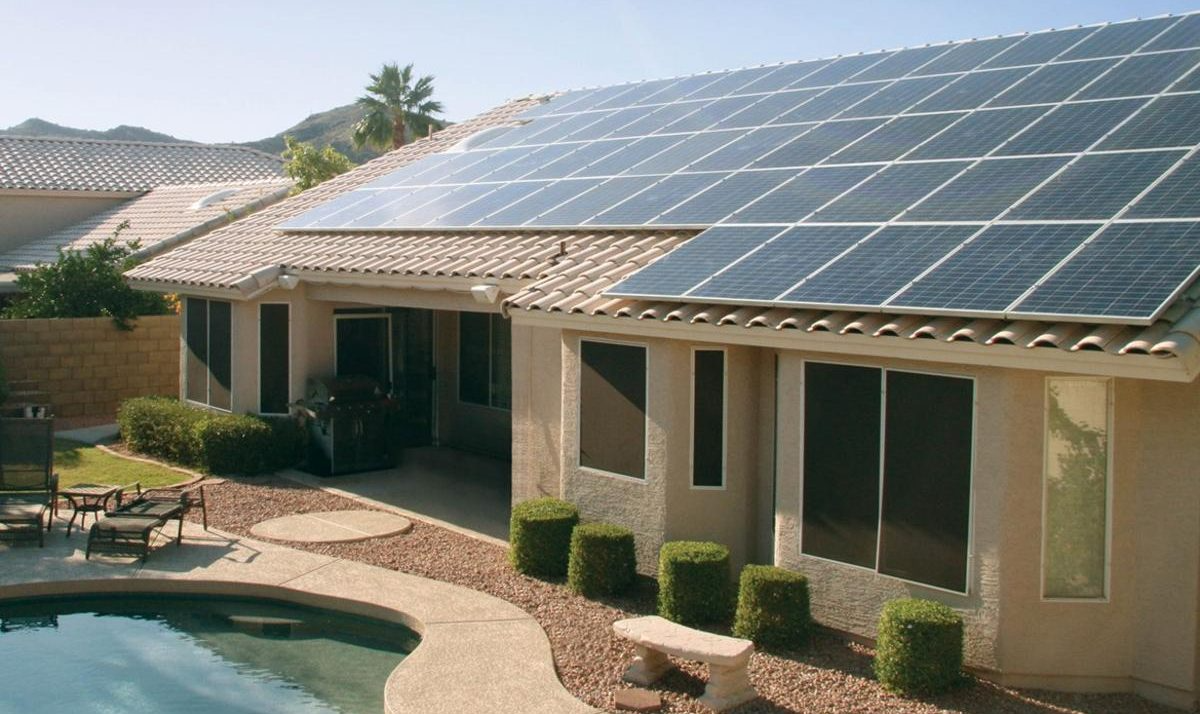
Arizona, known as the second sunniest state in the U.S., offers a prime opportunity for residents to harness the power of solar energy. With a combination of statewide tax credits, tax exemptions, and local rebate programs, along with the 30% federal solar tax credit, going solar in Arizona has become more affordable than ever before.
Arizona Solar Tax Exemptions
Federal Solar Tax Credit
The federal solar tax credit, also referred to as the Investment Tax Credit (ITC), is a national incentive that allows individuals to obtain a tax credit for the costs associated with installing solar panels. This credit offers solar owners a 30% deduction on their total system expenses. For example, if you buy a 10 kilowatt (kW) system for $33,000, your tax credit would equal $9,900.
Additional local incentives can be utilized, including exemptions from Texas’ sales and property taxes.
In 2020, the federal tax credit for solar decreased to 26% but was reinstated to its original rate of 30% in 2022 by the Inflation Reduction Act. This credit will remain accessible until 2034, with a gradual phase-out planned. Here is the schedule:
- The credit will decrease to 26% in 2033
- The credit will decrease to 22% in 2034
- Unless renewed by Congress, the credit will phase out entirely in 2035
Arizona Local Solar Exemptions
Arizona residents can use several incentives to make going solar more affordable. In addition to the federal solar tax credit, which allows for a 30% reduction in system costs, Arizona offers its own state solar tax credit.
Residents can receive a 25% state solar tax credit on the total cost of their solar system, including installation. This credit can significantly reduce the overall expense of going solar.
Arizona also provides property tax exemptions and sales tax exemptions on solar equipment.
Arizona State Residential Solar Income Tax Credit
- Incentive Value: Up to $1,000
- Frequency: One-time tax credit
In Arizona, residents can take advantage of a generous solar tax credit, which reduces 25% of their installation costs up to a maximum of $1,000.
This personal income tax credit can be claimed when filing taxes with the state. If the credit exceeds the taxes owed, it can be carried over for up to five years. It's important to note that this credit does not apply to those who lease their solar systems or are part of a power purchase agreement (PPA).
Energy Equipment Property Tax Exemption
- Incentive Value: 100% of taxes from the additional value added to your property by a solar panel system.
- Frequency: Continued exemption from the time your energy equipment is installed.
By installing a solar power system in Arizona, not only can you benefit from the cost savings and environmental advantages, but you can also increase the value of your home. The good news is that the state offers a property tax exemption, meaning you won't have to pay taxes on this additional value. It's important to note that this exemption extends beyond just solar panel systems. Other solar and efficiency upgrades are also covered. Here's a list of other equipment that falls under this exemption:
- Passive solar technology, such as a Trombe wall
- Solar pool heaters
- Solar space heaters
- Solar thermal electric
- Solar water heaters
To apply for this tax exemption, you must fully document your energy system purchase, installation, and costs to your county assessor. You can learn more about the Arizona property tax exemption on the DSIRE website.
Solar Equipment Sales Tax Exemption
- Incentive Value: 100% of sales tax on eligible solar equipment
- Frequency: One-time sales tax exemption
In Arizona, residents can benefit from a sales tax exemption on solar energy devices and their installation, provided by the Arizona Department of Revenue. This exemption applies to approved contractors and covers the cost of solar panels and associated installation expenses. It's important to note that the exemption does not include solar battery storage or additional accessories not part of the initial solar power system.
To claim the sales tax exemption, your solar installer must register with the Arizona Department of Revenue (ADOR) by submitting Arizona Form 6015. As the customer, you don't need to take any specific action as the process is handled by the installer.
Net Metering in Arizona
Most rooftop solar installations in Arizona are eligible for the state's net billing program, which replaced net metering in December 2016. Similar to net metering, the net billing program allows homeowners to earn credits on their electricity bills for any excess energy produced by their solar power systems.
However, unlike net metering, customers are credited at a non-retail rate for surplus energy generation. In Arizona, the credit is based on the avoided cost rate, representing the wholesale cost for the utility to generate electricity. This rate is typically lower than the full retail rate provided by net metering.
These credits have no expiration date and are paid out annually if they exceed a certain balance, usually between $10 and $25, depending on the utility company.
The export compensation rates for excess energy generated by solar panels in Arizona currently range from 7.81 to 10.45 cents per kilowatt-hour (kWh), depending on the utility company. For more detailed information about Arizona's net billing program, you can visit the DSIRE website.
Arizona Solar Resources
AZDOR - Income Tax Credit for Residential Solar Devices
AZDOR - Renewable Energy Production Tax Credit
Forbes - Arizona Solar Incentives: Tax Credits & Rebates 2023
Let US Solar Supplier guide your solar energy project! Consult with us today to match the perfect system to your needs.







